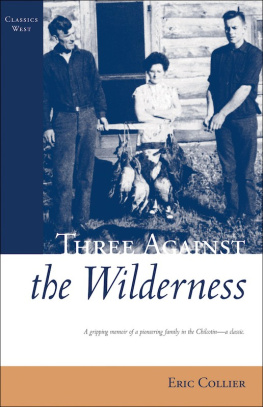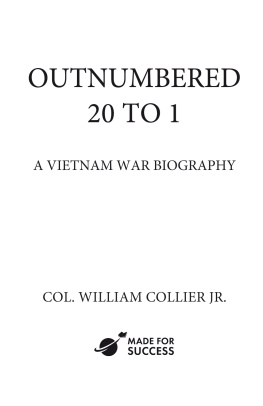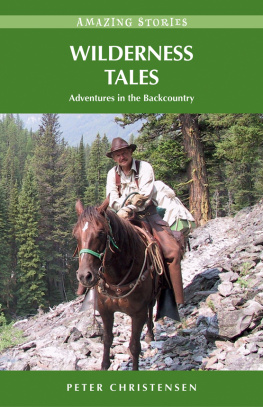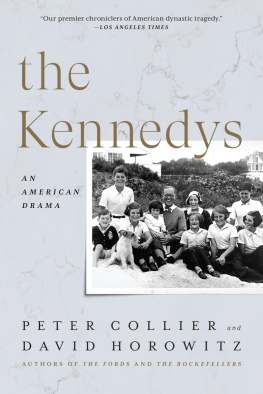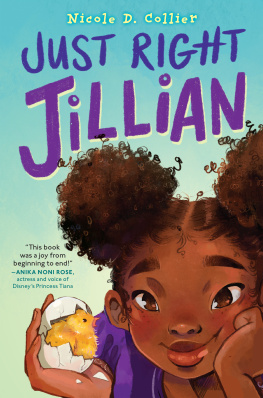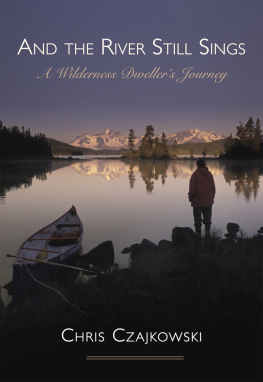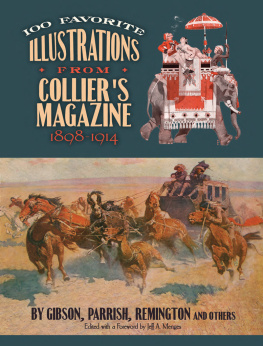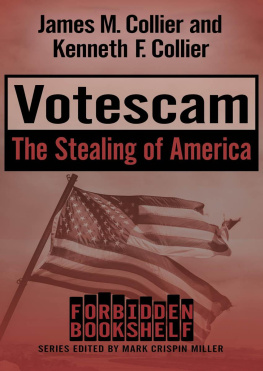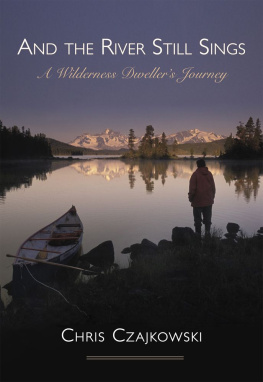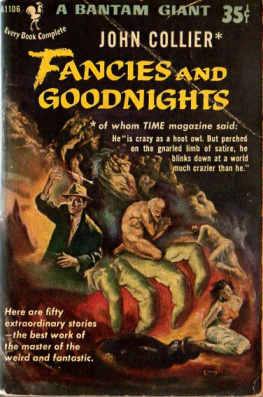All of The Classics West Series is available in both ebook and printed editions at touchwoodeditions.com
Capturing the spirit, appeal, and cultural heritage of the Canadian West.
- A Journey to Northern Ocean by Samuel Herne
- Three Against the Wilderness by Eric Collier
- Harmons Journal 1800-1819 by Daniel Williams Harmon
- The Rainbow Chasers by Ervin Austin MacDonald
- Klondike Cattle Drive by Norman Lee
- The Ranch on the Cariboo by Alan Fry
- Packhorses to the Pacific: A Wilderness Honeymoon by Cliff Kopas
- Pioneers of the Pacific: A Chronicle of Sea Rovers and Fur Hunters by Agnes C. Laut
About the Author
Eric Collier was born in Northampton, England, in 1903. He moved to Canada in 1920, where he worked at several jobs in the interior of B.C. He married Lillian Ross in 1928, and a year later son Veasy was born. The Colliers eventually settled at Meldrum Creek, where they built their own cabin and lived off the land, Eric eking out a living as a trapper.
By the late 1940s, Collier had become well known for his wildlife expertise and his advocacy of humane trapping methods. He also began writing articles for such publications as Northwest Digest in Quesnel, the Williams Lake Tribune and Outdoor Life in the U.S. In 1949 he became the first non-American to win Outdoor Lifes Conservation Award. It was, in fact, Outdoor Life staff who encouraged him to write a book about his experiences.
Collier moved his family to Riske Creek in 1960 and sold his trapline in 1964. He died at Riske Creek on March 15, 1966. Lillian moved to Williams Lake, where she died in 1992. The Colliers second cabin at Meldrum Creek, built in 1946, is now a historic site after being restored in 1994.
Chapter 1
It seemed that the whole world was ablaze when first I saw Meldrum Creek. From where I sat in temporary safety on the knoll, I could hear the fire move toward the creek from the north. When it reached the meadow beneath the knoll, the flames hurled themselves at the tinder-dry grass with a crackling roar and in scarce two minutes the whole meadow was ablaze. The flames cleared the creek channel at a bound and raced toward the spruces beyond. Within a half-dozen minutes the meadow lay black and smouldering. Though the needles of the spruces were still on fire, I knew that the trees were dying. And suddenly I thought, The creek is dying, the trees are dying, the land everywhere is dying.
Yet this was the very land that soon Lillian and I were to share. There in that barren, burned-over primitive wilderness that has been home to us for almost thirty years, we were to raise our son Veasy to manhood. There we tasted all of summers searing heat and winters penetrating hostility, our only neighbours the moose, bears, timber wolves and other wildlife of the muskegs and forest, some of whom seemed ever ready to dispute our right to be there at all. There we learned to accept the mosquitoes and deer flies that often drove us, our work horses and saddle stock almost crazy with their persistent thirst for blood, even as we accepted all that was good in the wilderness around us.
There we were to share moments of tranquilityovernight camps in the deep moss-carpeted forest, or by some quiet sparkling pond whose privacy had been disturbed before only by a flock of migratory waterfowl or some sour-tempered bull moose. Pleasant enough in summer, but in winter, when the floor of the forest hibernated beneath a shroud of three or more feet of snow, life in the woods and around the ponds was a matter of spartan endurance, a time when our breath frosted almost as it came from our lungs, and the cold pried at our flesh with the edge of a keen-bladed skinning knife. It was then, when winter held the wilderness in its hard grip, that Lillian would spend many moments of watching and waiting outside the cabin, standing bareheaded in the moonlight, indifferent to the vicious stab of the sub-zero temperature, so very still, listening for the soft swish of snowshoe webbing on ice, or the heavier step of a saddle horse as it broke the snows crust, her lips mutely wondering, Why arent they home yet? What is keeping them out in the snows at this hour of the night? Here in the country that was now becoming a charred, smouldering ruin even as I watched, we were to endure too many a moment of bleak despondency when all our hopes seemed to have gone so calamitously astray. Here we were to savour gratefully the moments of supreme happiness, accomplishment and satisfaction that were ours when finally some of those hopes bore fruit.
This was the Meldrum Creek where, when Lillians Indian grandmother was a child, the elk and deer herds came to quench their thirst, where beavers splashed their tails, trout leaped for the mayfly, and ducks and geese in their thousands glutted themselves at the pondweed beds. But now the water was stagnant; in spots there was none at all. Fire was sweeping the forest, the trees were already dead, and from my vantage point of safety on the knoll, watching the agony of it all, I could only think that the land was dying and there was not a soul to save it.

It was in the late spring of 1922 that I first saw the creek. Its headwaters, that is. I didnt see its mouth, where it drains into the Fraser River three hundred-odd miles as the goose flies north of Vancouver, British Columbia, until the fall of 1926.
I was riding a pinto gelding, six years old, innocent and tame enough without, but treacherous as shell ice within. If now he slouched along the trail at a slow lazy jogtrot, ears back, eyes partly slitted, the pinto could become a whirlwind of swift and furious activity should a willow grouse suddenly take wing from beneath his feet, or a deer heave wildly away from its bed in the thickets of second-growth jack pine alongside the trail. Hed bucked with me before, had the pinto, and on two occasions anyway thrown me clear out of the saddle. Right now, I guessed that I was at least thirty miles from another human being, and should the pinto and I part company, it might be many a long day before I saw hair or hide of the rascal again. So, while my left hand held a firm grip on the bridle lines, my right hovered just above the saddle horn, ready to grab it and hang on for dear life.
Having lived in the remote Chilcotin district of interior British Columbia now for all of a year, and having absorbed much of the ways of this strange untamed Chilcotin country into my bloodstream, I was uneasily aware of the fact that it was the matchbox carried by man himself rather than any act of God that was responsible for most of the forest fires that were now burning unchecked over so much of the land. Here it was quite orthodox for anyone wishing to cut slough-grass hay for his cattle on some as yet unmowed wild hay meadow to ride out into the meadow on some sunny day in late spring and toss lighted matches into the dead grass of yesteryear and get rid of it, so that at a later date in summer, when the hay was ready to cut, it would not clog or impede the sickle bar of the mowing machine. Perhaps the total area to be shorn of its natural grasses comprised but twenty or so acres, but in order to rid its bottom of the litter, hundreds of acres of surrounding forest fell prey to the flame.

